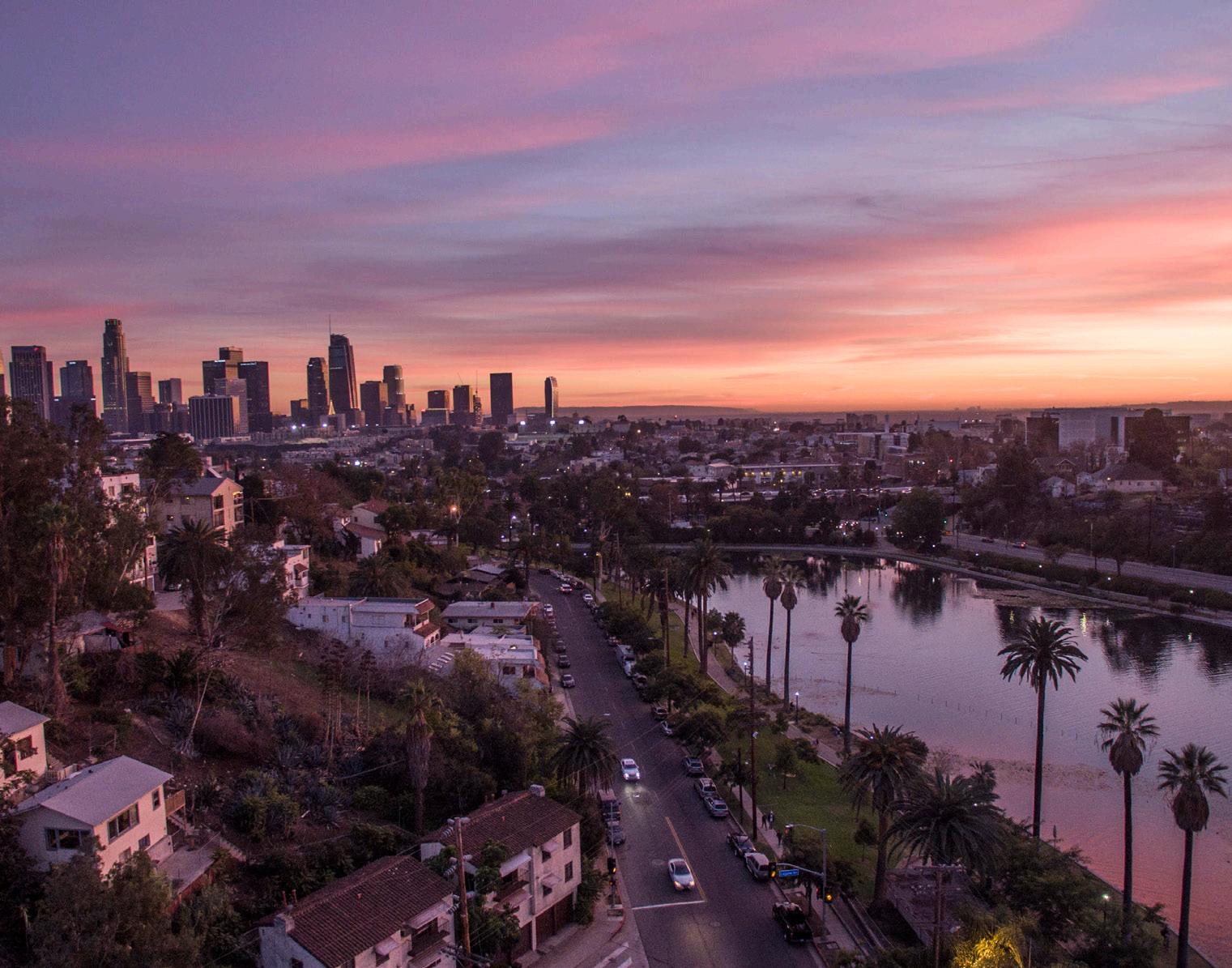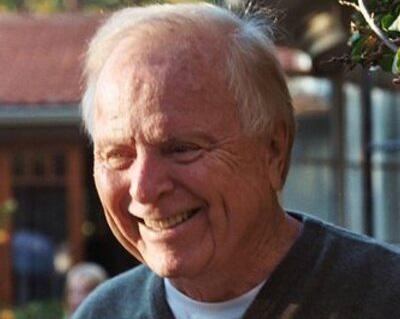
6 minute read
UCLA survey says dissatisfaction remains high for LA County residents
By City News Service
vital infrastructure was rebuilt in record time,” Krekorian said in a statement. “Nowhere is his impact more visible than in downtown Los Angeles. He drove the long-delayed completion of Disney Concert Hall, presided over the restoration of City Hall, and rebuilt a library system that had been ravaged by budget cuts and the catastrophic Central Library fire.”
Advertisement
Riordan was instrumental in leading the drive for charter reform that created the neighborhood council system, Krekorian said.
“The conflicts of that era resisted easy resolution, but Mayor Riordan always aimed for progress not perfection, and in the Riordan years the city saw very real progress,” Krekorian said.
Riordan
Inflation, the homelessness crisis, the COVID-19 pandemic’s impacts and rising housing costs are contributing to the woes of Los Angeles County residents who recently expressed nearly historic levels of dissatisfaction with their quality of life, according to a new UCLA survey released Wednesday.
The latest edition of the UCLA Luskin School of Public Affairs’ quality of life index reveals that despite the sunshine, beaches and excellent tacos, living in Los Angeles is essentially a downer for respondents, although they admit to some slight improvements over last year.
Inflation remains a primary concern as people worry about losing their homes or feeding their families. Many residents said their quality of life had been affected by a particular homeless encampment. And they believe the pandemic’s impacts on the region will be long-lasting.
The survey measures county residents’ satisfaction levels in nine categories. The overall rating rose two points to 55, but it was still the second-lowest rating in the eight years of the project. The highest rating of 59 was recorded in 2016 and 2017.
“Last year’s record negativity appears to have bottomed out and made a slight upward turn,” said Zev Yaroslavsky, director of the Los Angeles Initiative, who oversees the index. “But inflation has taken a toll, especially among lower- and middle-income residents.”
In fact, 94% of respondents said they were affected by inflation and the increase in costs of basic needs. And 71% said it had a major impact. Rising housing costs were an issue for 82% of respondents, and 58% said the issue is a major concern.
More than a quarter, or 28%, of respondents worried about losing their homes and becoming homeless, while 25% were afraid their families will go hungry because they can’t afford the cost of food. Nearly half of the people in households earning less than $60,000 were concerned about becoming homeless.
Almost three-quarters of residents, 73%, said their quality of life had been impacted in the last year by a particular homeless encampment. A major impact of the encampments was reported by 43% of respondents, with San Fernando Valley and Westside residents at 50% and San Gabriel Valley residents at 28%.
Most respondents, 75%, said life has been fundamentally changed by the COVID-19 pandemic. Only 23% expect life to return to the way it was before.
Many respondents said their income changed during the pandemic, with 27% saying it went down and 30% saying it went up. More than a third, or 35%, of those with a household income below $60,000 said it declined. Nearly half, or 45%, of respondents with a household income over $120,000, said it rose.
“The income disparities that have defined the Southern California economy for several decades have been exacerbated by COVID, as the rich seem to be getting richer while the poor are getting poorer,” Yaroslavsky said. “County residents whose incomes have not rebounded have less money than they used to, and what they have doesn’t buy what it did before. They’re getting hurt coming and going.”
This year’s quality of life survey was based on interviews conducted with 1,429 county residents over 30 days beginning on Feb. 24. The survey has a margin of error of plus or minus 2.6%.
Ratings were up slightly in all nine categories except health care, which remained the same as 2022.
The survey also examined approval ratings for local elected officials. Los Angeles Mayor Karen Bass had the highest favorability, with 46% of all respondents viewing her favorably and 23% unfavorably. City of Los Angeles respondents were even more positive, with 51% favorable and 17% unfavorable.
Sheriff Robert Luna was rated 37% favorable and 21% unfavorable, while Police Chief Michel Moore received a 31% favorable and 22% unfavorable rating, according to the index.
Meanwhile, ratings for District Attorney George Gascón improved somewhat from last year but were still negative — 27% of county residents view him favorably, compared to 40% who view him unfavorably. Last year, the survey’s result was 22% favorable, 44% unfavorable.
Cardinal Roger Mahony, archbishop emeritus of Los Angeles, recalled Riordan’s key role in the construction of the Cathedral of Our Lady of the Angels beginning in 1998, following the severe damage incurred by its predecessor, the Cathedral of Saint Vibiana, in the Northridge quake.
“He not only rallied the private sector to assist in rebuilding the I-10 freeway and other buildings, but he also assisted us when the city red-tagged the former St. Vibiana’s Cathedral in downtown,” Mahony said in a statement.
“He was instrumental in working with County Supervisor Gloria Molina in acquiring the property on Temple Street between Grand Avenue and Hill Street. As he did with all major construction in the city during his eight years, he streamlined the process for permits and inspections which shortened the construction time. Both of them were key to the successful construction and dedication of our new cathedral.”
Mahony also recalled Riordan as a champion of Catholic education who helped found the Catholic Education Foundation in 1987. Thursday, more than 10,000 grants a year are made through that organization to families who could not otherwise afford tuition, according to the archdiocese.
“Dick Riordan was an Irish Catholic exuding the charm, creativity, and energy which led him ‘to raise our wings and soar,’” Mahony said. “He loved new ideas, he was passionate about moving beyond the past ways and methods, and he was bold in engaging in any new idea or plan which would help people across the city. ... His legacies span an enormous spectrum of commitment to serving all people and their communities in every way possible.”
LAPD Chief Michel Moore posted in a tweet, “LAPD joins all of Los Angeles in extending condolences to the family of Mayor Richard Riordan. Mayor Riordan loved Los Angeles & believed in the men & women of LAPD. His Public Safety Initiative rebuilt the Department with critical staffing & technology. May God welcome him home.”
Los Angeles County Supervisor Janice Hahn said Riordan was the right mayor for the right time for LA in a tweet.
“He led us through challenging times and championed charter reforms that made our city better. I am grateful I could celebrate his 92nd birthday with him last year and thank him for everything he did for our city,” Hahn posted on Twitter.
City Councilman Tim McOsker said he worked with Riordan while serving as a deputy city attorney, calling him “passionate, determined and tough.”
“He knew charter reform was necessary and I was honored to be among those who worked to pass needed reforms and create a more accountable and efficient city government, including creating a citywide network of neighborhood councils to encourage community participation,” McOsker said in a statement. “Even in disagreement over policy, Mayor Riordan and the city family had the same goal of making Los Angeles a better place.”
Former Police Chief and LA City Councilman Bernard C. Parks said in a statement, “Today, we find ourselves without the man who was our compass during the very many challenges of the 90s.”
Parks, who was appointed chief by Riordan in 1997, added, “Mr. Mayor, your unbending strength inspired me. And, your faith in me changed my life forever. Together, we made this city one of the safest in the nation.”
Riordan was born May 1, 1930, and grew up in New Rochelle, New York. He was the youngest of eight children in an Irish Catholic family.

He told the Los Angeles Times one of his most vivid Depression childhood memories was seeing unemployed men coming to the family’s back door in search of food or work. Riordan attended an all-male Jesuit prep school where both neckties and Latin were mandatory. He attended Santa Clara University, where he played on the football team. After two years at Santa Clara, he transferred to Princeton. Following his time at Princeton, he served in the Army in Korea and graduated first in his class at the University of Michigan Law School.
Riordan married Eugenia “Genie” Warady at a resort in New York and moved to Southern California. They had five children and he built a law practice, eventually founding Riordan & McKinzie.
He emerged as a political player in the 1980s, lending $300,000 to Tom Bradley’s campaign for governor and served on the city’s Coliseum and Recreation and Parks commissions. He also helped lead a successful campaign to oust state Supreme Court Justice Rose Elizabeth Bird in 1986.
Two of Riordan’s children died during his rise in political circles. Billy, his only son, died in a scuba diving accident off the East Coast days before his 22nd birthday. His daughter Carol died from complications of an eating disorder when she was 19.
Riordan was married four times. He was married to Genie Riordan for 23 years before the marriage was annulled by the Catholic church. He married Jill Noel in 1990, children’s activist Nancy Daly in 1998, and Elizabeth Gregory, then head of admissions at Harvard-Westlake School, in 2017.
Riordan is survived by his wife; three children, Mary Elizabeth Riordan, Kathleen Ann Riordan and Patricia Riordan Torrey; three grandchildren, Luca, Jessica and Elizabeth; and a sister, Mary Elizabeth Riordan Hearty.





